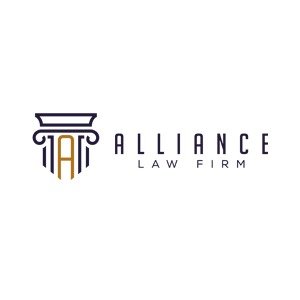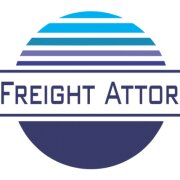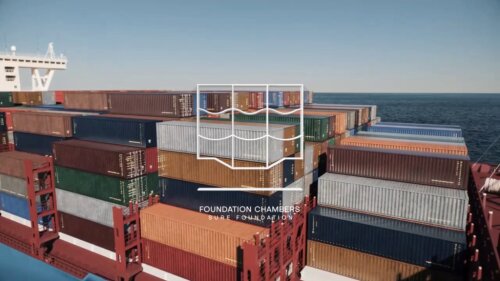Best International Trade Law Lawyers in Port Harcourt
Share your needs with us, get contacted by law firms.
Free. Takes 2 min.
List of the best lawyers in Port Harcourt, Nigeria
About International Trade Law in Port Harcourt, Nigeria
International Trade Law governs the rules and customs for handling trade between countries. In Port Harcourt, Nigeria, this field of law is crucial due to the city's strategic position as a significant commercial hub in the oil-rich Niger Delta region. This legal domain covers a broad range of activities involved in trade and commerce, including import/export regulations, tariffs, trade agreements, transport of goods, taxation, and more. Given Port Harcourt's prominence in global oil and gas trade, businesses often engage in international transactions regulated under both Nigerian law and international agreements.
Why You May Need a Lawyer
There are several situations where individuals or businesses in Port Harcourt may require legal assistance in International Trade Law. These include:
- Compliance with import and export regulations.
- Negotiating or drafting international trade contracts.
- Resolving trade disputes or contract breaches.
- Ensuring adherence to international sanctions and trade bans.
- Advice on tax implications of international trade.
- Dealing with customs issues or clearance delays.
- Understanding and leveraging trade agreements or free trade zones.
Local Laws Overview
International Trade Law in Nigeria is governed by a combination of domestic legislation and international agreements. Key aspects include:
- The Customs and Excise Management Act: Governs the importation and exportation of goods, and the administration of customs duties.
- The Nigeria Export Promotion Council Act: Supports and promotes non-oil exports from Nigeria.
- The Ports Act: Manages the operation of Nigerian ports, crucial for maritime trade flow in Port Harcourt.
- The Foreign Exchange (Monitoring and Miscellaneous Provisions) Act: Regulates foreign exchange transactions critical for international trade settlements.
- Various Bilateral and Multilateral Trade Agreements: Nigeria is part of several trade agreements that influence bilateral trade practices.
Frequently Asked Questions
What is International Trade Law?
International Trade Law refers to legal guidelines that dictate international trade operations, including import/export activities and trade dispute resolution.
Why is compliance with international trade laws important?
Compliance ensures legal trading operations, prevents sanctions or penalties, and facilitates smooth cross-border commerce.
What are the key documents required for international trading?
Key documents include bills of lading, certificates of origin, commercial invoices, and compliance certificates.
What tax implications should I consider for international trade?
Consider import duties, Value Added Tax (VAT), withholding taxes on services, and any applicable local levies.
How do trade agreements affect my business?
Trade agreements can reduce tariffs, establish quotas, and create a more predictable trading environment with signatory countries.
What steps should I take if I face a trade dispute?
Seek legal advice immediately, gather all relevant documents, and attempt to resolve the dispute amicably before proceeding to arbitration or court.
What are the risks of non-compliance with international trade laws?
Risks include legal penalties, fines, seizure of goods, loss of trading rights, and damage to business reputation.
How do international sanctions impact trade activities?
Sanctions limit or prohibit trade with certain countries, affecting the legal framework within which businesses can operate.
Can I get a waiver on tariffs or import duties?
Waivers might be available under specific trade incentive schemes or Free Trade Zone operations, depending on eligibility.
How can I find a qualified International Trade lawyer in Port Harcourt?
Conduct thorough research, check professional credentials or legal directories, and seek referrals from trusted business associates.
Additional Resources
For further assistance in International Trade Law, consider reaching out to the following resources and organizations:
- Nigeria Export Promotion Council (NEPC)
- Nigeria Customs Service (NCS)
- Port Harcourt Chamber of Commerce, Industry, Mines and Agriculture (PHCCIMA)
- African Development Bank (AfDB)
- The Nigerian Bar Association - Port Harcourt Branch
Next Steps
If you require legal assistance in International Trade Law, consider taking the following steps:
- Identify the specific legal area where you need help (e.g., contract review, dispute resolution, etc.).
- Research and consult with qualified International Trade lawyers or law firms in Port Harcourt.
- Prepare relevant documents and evidence related to your legal issue.
- Schedule consultations to discuss your case and determine the best course of action.
- Consider reaching out to local trade bodies or authorities for guidance and support.
Taking these steps will better prepare you for navigating the complexities of International Trade Law in Port Harcourt, Nigeria.
Lawzana helps you find the best lawyers and law firms in Port Harcourt through a curated and pre-screened list of qualified legal professionals. Our platform offers rankings and detailed profiles of attorneys and law firms, allowing you to compare based on practice areas, including International Trade Law, experience, and client feedback.
Each profile includes a description of the firm's areas of practice, client reviews, team members and partners, year of establishment, spoken languages, office locations, contact information, social media presence, and any published articles or resources. Most firms on our platform speak English and are experienced in both local and international legal matters.
Get a quote from top-rated law firms in Port Harcourt, Nigeria — quickly, securely, and without unnecessary hassle.
Disclaimer:
The information provided on this page is for general informational purposes only and does not constitute legal advice. While we strive to ensure the accuracy and relevance of the content, legal information may change over time, and interpretations of the law can vary. You should always consult with a qualified legal professional for advice specific to your situation.
We disclaim all liability for actions taken or not taken based on the content of this page. If you believe any information is incorrect or outdated, please contact us, and we will review and update it where appropriate.
















